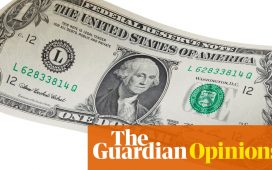The maker of Pyrex kitchenware and the Instant Pot pressure cooker has filed for bankruptcy protection, blaming rising interest rates for its financial difficulties.
Instant Brands, controlled by the private equity investor Cornell Capital, said late on Tuesday it had filed for Chapter 11 bankruptcy protection in the Southern District of Texas, as it tries to restructure liabilities of as much as $1bn (£790m).
The company said it would continue to serve retailers “without interruption” and continue to pay its 2,400 employees while seeking to shore up its finances and prevent the sale of some of the best-known brands in kitchenware.
Instant Brands says its products are in approximately 90% of homes in the US, as well as in other countries. However, despite that reach, rapidly rising interest rates across the world have exposed the vulnerabilities of many businesses with large debt loads.
Instant is not the only US kitchenware company to struggle in recent months. Tupperware, whose plastic containers are similarly common in kitchens around the world, warned in April it would go bust without new funds.
The history of Pyrex dates to 1915, when the wife of an engineer at the Corning glassware company asked her husband to try out tougher borosilicate glass for cooking meals, according to the company’s website.
The glass expanded less when heated or cooled, making it much less likely to shatter when heated or cooled rapidly. The Pyrex brand was later used for dishes and jugs using other types of temperature-resistant glass.
The rise of the Instant Pot was a more recent phenomenon driven by social media, after it was invented in 2010 by a Canadian telecoms engineer who was reportedly made redundant during the financial crisis. Sales of the device grew rapidly. Self-described “potheads” shared recipes online that boosted the pressure cooker’s popularity to the point that Slate magazine in 2017 described the Instant Pot as “an entire economy and a religion” and a “cult”.
Ben Gadbois, Instant Brands’ chief executive, said the business had been working with investors to “position the company for its next phase of success” despite falling into bankruptcy. He blamed higher borrowing costs for its financial problems.
“After successfully navigating the Covid-19 pandemic and the global supply chain crisis, we continue to face additional global macroeconomic and geopolitical challenges that have affected our business. In particular, tightening of credit terms and higher interest rates impacted our liquidity levels and made our capital structure unsustainable.”
after newsletter promotion
Under the US Chapter 11 bankruptcy process, companies can stay in business while agreeing new terms with lenders who would probably lose out if it went bust. The company said it had received a commitment for $133m in financing from its existing lenders to see it through the bankruptcy process.
The company said the move “provides us time and flexibility to continue ongoing discussions with our sponsor, lenders and other financial stakeholders”.








